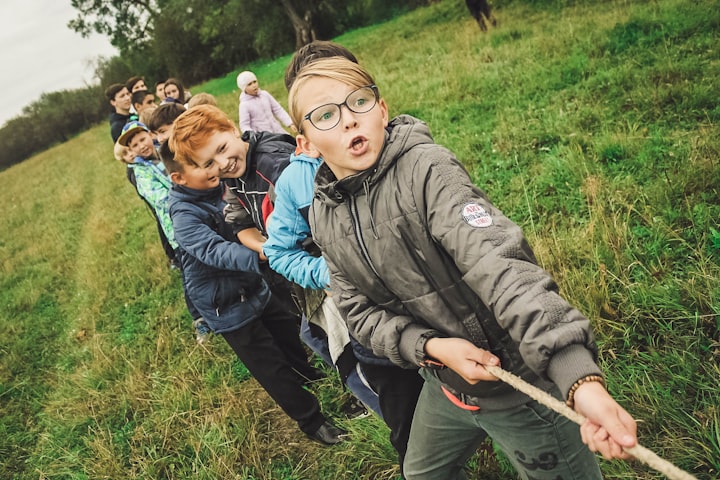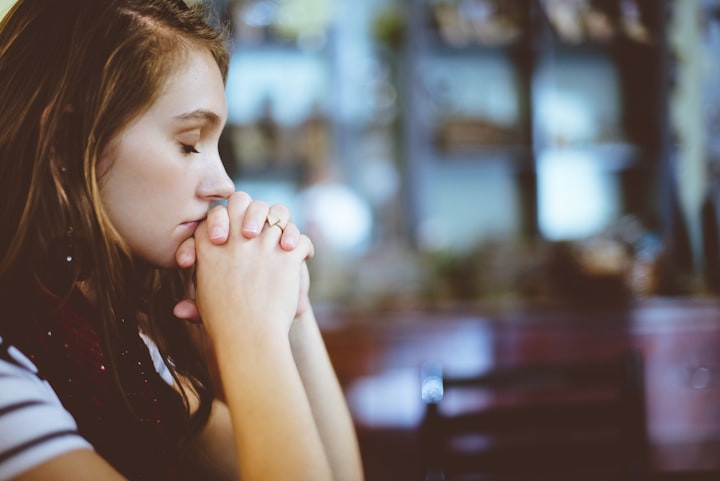Rethinking Resilience in Kids: Nurturing vs. Toughening
Reflecting on the effects of positive and negative experiences in school

While chatting with my besties today over coffee, a topic emerged. A recurring question we get in our community: why do we want to shield our children from everything?
Some people say that if they never get hurt, if they're not 'healthily traumatized', then they'll be incapable of living. I never liked that phrase, 'healthy traumatized' sounds wrong in itself. Many believe that traumas from school, bullying, exclusion, and failures are essential parts of development. Yet, all my years in therapy, proved I have blocked certain traumas and they had a huge influence on my self-esteem and courage to act in various situations.
Let me tell you something. When I was still in high school, I encountered two types of teachers.
The first type was one who always encouraged and praised kids. They also provided criticism but in a constructive manner. I soared under their guidance. I especially liked my literature teacher, who had a way of encouraging creativity and offering us the freedom to express our own ideas on text analysis.
The other type was the 'whip-cracker,' who publicly humiliated students while in front at the blackboard, made comments about my body, my personality, and yelled at me. Because this is also 'education.' And astonishingly, it works for some. Not for me. I crumbled under these and couldn't soar.
I understand there are some people who are motivated by trauma. They draw strength from it, toughen up and want to prove themselves because of it. It even hurts to think of it. But please understand, we're also here. The other team. Those who shatter from such experiences. It exists on a small and large scale.
It's not that I can't handle it because I was so protected as a child. I experienced exclusion and was envied and humiliated by teachers, though perhaps to a low extent compared to other kids who couldn't behave. I have quite a collection of such stories, but they didn't make me stronger. Quite the opposite. For souls like mine (and I'm far from alone in this) this is not at all constructive.
Why do you think everyone benefits from a little trauma?
The reality is that, even in the most optimal situations, a child will still encounter trauma, because, at some point, they'll face illness, death, difficulties, and other challenges. They'll fall, end up in the hospital, etc. We can't shield them from everything. But from what we can, why not?
One of my acquaintances thinks that Waldorf education is harmful because it doesn't prepare for life. Kids and teachers together seem to be in their own happy bubble. Have you met adult Waldorf graduates? Surely there are various types, but the common thread among those I know is that they have confidence, personal opinions, and dare to be different. Why is this a disadvantage?
Our kids' kindergarten used to be Waldorf, but these days officially it is a normal state institution. However, they kept the Waldorf style in many ways, integrating it with a 'normal' curriculum. I was thrilled that my kids learned practical things, like cutting apples and preparing apple dishes in Autumn, planting seeds, repotting flowers, building solar systems, making grape juice, talking about the seasons during the year, and plenty of other activities.
In school, our eldest is fortunate to have creative teachers, passionate about cultivating curiosity and safety in children. Additionally, he has not yet experienced any form of bullying or discrimination. Teachers take care and pay attention to how kids talk with each other and they are also watching them when they are outside in the yard playing. Perhaps this only happens in the first grades, but it is encouraging.
So I firmly believe that if a child experiences minimal discrimination, if teamwork outweighs competition, if confidence-building prevails over criticism (and I'm not talking about unwarranted praise), it won't produce weak children, but rather those with healthy self-esteem, resilience, who may be much more resistant to life's challenges than their peers who were unnecessarily 'toughened up' early on.
What do you think about this topic?
-
💗 Thank you for reading! I appreciate your support.💗
Buy me a coffee or a tea and/or let me know your ideas in the comments section. I welcome all your thoughts and constructive discussions.
About the Creator
Gabriela Trofin-Tatár
Full Stack Developer in the making and mother of 3 littles. Curious, bookaholic and travel addict. I also write on Medium and Substack: https://medium.com/@chicachiflada & https://chicachiflada.substack.com/






Comments (4)
There’s no one size fits all that’s for sure. Yet one can’t protect their children from everything. I think open conversations about bullying, harassment, discrimination etc should be talked openly about in home from a young age so they can call out bullying & be able to make sense of it.
I think the first type of teachers you discussed are those who know that everyone has respect and a personal boundary. That boundary should not be crossed by anyone.
Waldorf education is amazing and it prepares children for so many challenges in life. The problem is they are too open minded for the current societal system, as seen by traditional education. Which is a pity, as traditional education is lagging so much behind! I am all for increasing practicability and kindness in how kids are being taught to navigate the world nowadays.
It's like walking a tightrope. You want to protect kids from unnecessary harm while still giving them chances to learn and grow. Too much hardship can hurt, but a little challenge can build strength. It's about finding the right balance.